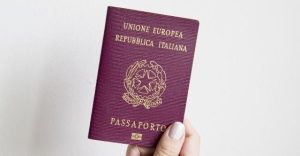Foreign fighters: do States have an obligation to readmit their own nationals?
Nov 12, 2019
This article is written by Marco Mazzeschi and contributed to our publication on Medium.com.
Follow us on Medium.com/StudioMazzeschi for more latest articles.
President Trump is asking European allies to take back over 800 Isis fighters captured in Syria: what obligations States have under international law?
Italy and the EU countries are facing a massive migratory wave and it is expected that such a flow of economic migrants and asylum seekers will continue in the next few years due to several conflicts taking place in Africa and to demographic growth expected in the continent. According to the UN, an additional 2.4 billion people are projected to be added to the global population between 2015 and 2050 and 1.3 billion will be added in Africa.
Every year, between 400,000 and 500,000 foreign nationals are ordered to leave the EU because they have entered or they are staying irregularly. However, only 40 % of them are sent back to their home country or to the country from which they traveled to the EU.
More recently, with the Turkish military operation against the Kurdish forces on the Syrian border, many parties have expressed concerns about the possible fate of ISIS foreign fighters who are held captive by the Kurdish militia. President Trump tweeted: “The United States is asking Britain, France, Germany, and other European allies to take back over 800 Isis fighters that we captured in Syria and put them on trial. The Caliphate is ready to fall. The alternative is not a good one in that we will be forced to release them”.
Some EU countries have said they are preparing to take back their former jihadists, but the UK has been more resistant: it says the fighters held by the west’s Syrian Kurd allies can only return if they seek consular help in Turkey.
Readmission agreements
EU countries have faced during the last decades the problem of returning irregular migrants to their countries of origin.
One of the reasons for the low rate of effective return among migrants who have been ordered to leave the EU is the lack of cooperation from some third countries in identifying and readmitting their nationals. This is the reason why the EU co-operates very actively with the home countries of irregular migrants, in particular through ‘readmission agreements’. These agreements set out clear obligations and procedures for the authorities of the non-EU countries and of EU Member States as to when and how to take back people who are irregularly residing in the EU territory.
EU Readmission Agreements are based on reciprocal obligations and are concluded between the European Union and non-EU countries to facilitate the return of people residing irregularly into their country of origin or to a country of transit. They operate alongside but take precedence over bilateral readmission agreements between the concerning EU Member States and non-EU countries. They are negotiated in a broader context where partner countries are usually granted visa facilitation and other incentives such as financial support for implementing the agreement or special trade conditions in exchange for readmitting people residing without authorization in the EU.
Do States have an obligation to readmit their own nationals, irrespective the existence of a readmission agreement?
Yet, do States have an obligation under international law to readmit their own nationals even in the absence of a readmission agreement? The obligation of a State to readmit its own nationals is deemed as a firmly established norm of customary law because of the coexistence of opinio iuris and consistent State practice.
The European Court of Justice affirmed in 1974 (Case 41–74 Van Duyn v. Home Office) that a principle of international law prevents States from refusing the right of entry or residence to its own nationals. The Legal Service of the EU Council of Ministers expressed a different view on the matter (Council Doc 6658/99) affirming that it is doubtful whether, in the absence of a specific agreement between the concerned States, a general principle of international law exists, whereby these States would be obliged to readmit their own nationals when the latter do not wish to return to their State of origin.
While the doctrine unanimously affirms the existence of such an obligation, there are however two different views on the grounds that justify the States’ obligation:
a) Part of the doctrine affirms that the obligation derives from the right of every State to expel foreigners and the right of everyone to return to its own country, right which is set forth in several international Conventions, such as art. 13(2) of the Universal Declaration of Human Rights and art. 3(2) of the European Convention of Human Rights. The State’s obligation would, therefore, be against the individuals as a consequence of the rights deriving from their nationality;
b) Another part of the doctrine affirms, instead, that the obligation to readmit its own nationals would derive on the States’ right to regulate access to and expulsion from their territory. The refusal of a country to readmit its own nationals expelled from the territory of another State would, therefore, entail a breach of the territorial sovereignty of the host State and jeopardize the right of the host State to expel foreigners.
How shall foreign fighters captured abroad be treated?
In conclusion, readmission agreements are surely important to facilitate host States to send irregular migrants back to their country of origin. It is, however, important to highlight that, from a strictly legal point of view, States would have in any event an obligation under international law to readmit their own nationals. The execution of readmission agreements (which usually include the granting of benefits and incentives to the receiving State) does not contrast with or in any way affect or limit the existence of the general obligation of States to readmit their own nationals.
You can find the full article on Medium.com in the link below: https://medium.com/studiomazzeschi/states-obligation-to-readmit-their-own-nationals-3a54bf01d4d4
Follow us on Medium.com/StudioMazzeschi for more latest articles.
Attorney at law.
One of the leading corporate immigration lawyers in Italy. Admitted to the Milan Bar Association (1988) and to the Taipei Bar Association (2016), a member of the American Immigration Lawyers Association (AILA) and an accredited partner of Invest in Tuscany.





























